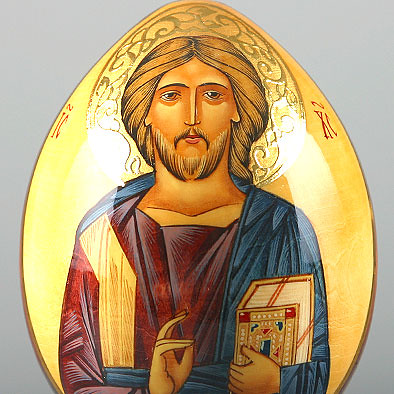Q: What is Good Friday?
A: Well that's easy. It's a day for remebering the crucifixion of Jesus.
Q: What should we do on Good Friday?
A: Remember that Jesus died to save us from sin.
Q: What is the purpose of this remberance?
A:
...How would you answer this question?
For myself, the key seems to lie in an attitude summed up in one of my favorite quotes, this one by Martin Luther.
"I feel as if Christ had died only yesterday."
The first time I read this, it radically changed my perspective on Christ's death, along with the entire Gospel. Just dwell on that for a minute, or even a bit longer! What would your view of God, your commitment to Christianity, your view of this physical life, and your appreciation of God's saving sacrifice look like if Christ had actually died yesterday? Reflect on that for a minute... place yourself in the moment of Christ's life and death.
I know... the truth is, we aren't living in first-century Jerusalem. I've often struggled with how to consciously live for Christ when he hasn't been physically present for some 2000 years. However, I'm compelled to follow a logical conclusion: The absolute truth and incredible significance of Christ's death is equally present, whether he died in the first years of the 1st century or the in the 21st century.
If I truly believe that Christ died as the Scriptures tell us, than the length of time doesn't have to lessen its significance, because it doesn't lessen its truth! If the Revolutionary War had not occurred, however long ago it was, we might still be under England's rule. If Christ's crucifixion had not happened, we would definitely still be under the curse of sin and eternal death. Two historic, true, documented events that we only experience as history, yet they both (Christ's death infinitely more that the American Revolution) contain a personal significance.
On Monday, Bryan College held an hour-long worship service centered on Christ's death. The result of not just an hour of worship, but more importantly an intentional focus and meditation on the crucifixion, caused me and those around me to greet each other and - instead of discussing the latest homework assignment - say, "Isn't our God incredible? To think that he loved us that much before we were redeemed, but covered in sin!" This is when the Gospel becomes real... when it means so much to us that we can't help but talk about it, not out of duty, but out of desire.
So I want to challenge you to observe Christ's death this Friday. And I don't mean simply "think about His death" while you go throughout your day as I've done in the past, but rather really spend some time in reflection of its significance. Do you realize how hopeless we would be without it? Think about how the awesome, matchless love of God is present with us eternally, due to the greatest sacrifice ever made.... and let it radically impact your conversations, your attitude, and the very reason you live.. to share this incredible truth.
Brian
Brian



